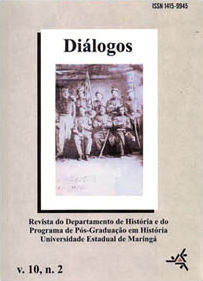CARYL PHILLIPS’S CROSSING THE RIVER (1993): TENSIONS IN DIASPORA, DISPLACEMENT AND SPLIT SUBJECTS
Abstract
Abstract. Pre-transnational and transnational diasporas have given rise to various fictional representations due to a deepening of the Unheimlichkeit phenomenon and process as a post-colonial condition. The African diaspora to the New World spanning four centuries and the contemporary south-north dislocation triggered by tribal wars, miserable conditions, prostitution, jobs and better living condition have been the object of novels written by authors so wide apart as Kincaid, Gordimer, Morison, Naipaul, Coetzee and Warner. In Crossing the River, Caryl Phillips dumps together, in a very conscious way, four highly fragmented narratives involving three children sold on the African coast by a drought-stricken farmer in 1752. Research restricts itself to the narratives of the split subjects, Nash and Martha, whose homelessness reveals the trajectory of each: Nash’s gaze towards Africa and Martha’s westward journey towards subjectivity and community-building. The interlacing of these narratives brings forth not only the constant diasporic situation of Negroes worldwide but highlights the frustration and loneliness of non-colonial subjects in a globalized world. Resumo. As diásporas pré-transnacional e transnacional têm engendrado várias representações ficcionais devido ao aprofundamento do fenômeno e ao processo chamado Unheimlichkeit no contexto da condição pós-colonial. A diáspora africana ao Novo Mundo, a qual abrange quatro séculos, e o deslocamento contemporâneo, na direção sul-norte, provocado por guerras tribais, condições de pobreza e miséria, prostituição, procura de emprego e melhores condições de vida, têm sido o conteúdo de vários romances, em inglês, por autores tão díspares quanto Kincaid, Gordimer, Morison, Naipaul, Coetzee e Warner. No romance Crossing the River [A travessia do rio], o caribenho Caryl Phillips reúne quatro narrativas fragmentadas que envolvem três crianças vendidas na costa oeste africana por um pai desesperado, em 1752. As narrativas dos sujeitos coloniais, Nash e Martha, revelam a trajetória de cada um através da condição de sem-lar: o olhar de Nash em direção à África e a viagem à fronteira ocidental de Marta em busca da subjetividade e da construção da comunidade. O entrelaçamento dessas narrativas faz emergir não apenas a situação diaspórica dos negros espalhados no mundo, mas também realça a frustração e a solidão de sujeitos não-coloniais num mundo globalizado.Downloads
DECLARAÇÃO DE ORIGINALIDADE E CESSÃO DE DIREITOS AUTORAIS
Declaro que o presente artigo é original, não tendo sido submetido à publicação em qualquer outro periódico nacional ou internacional, quer seja em parte ou em sua totalidade. Declaro, ainda, que uma vez publicado na revista DIÁLOGOS, editada pela Universidade Estadual de Maringá, o mesmo jamais será submetido por mim ou por qualquer um dos demais co-autores a qualquer outro periódico. Através deste instrumento, em meu nome e em nome dos demais co-autores, porventura existentes, cedo os direitos autorais do referido artigo à Universidade Estadual de Maringá e declaro estar ciente de que a não observância deste compromisso submeterá o infrator a sanções e penas previstas na Lei de Proteção de Direitos Autorias (N. 9609, de 19/02/98).
STATEMENT OF ORIGINALITY AND COPYRIGHT CESSION
I declare that the present article is original, has not been submitted for publishing on any other national or international journal, neither partly nor fully. I further declare that, once published on DIÁLOGOS journal, edited by the State University of Maringá, it will never be submitted by me or by any of the other co-authors to another journal. By means of this instrument, on my behalf and on behalf of the other co-authors, if any, I waive the copyright of said article to the State University of Maringá and declare that I am aware that non-compliance with this commitment will subject the violator to sanctions and penalties set forth in the Copyright Protection Law (No 9609, of 19/02/98).















